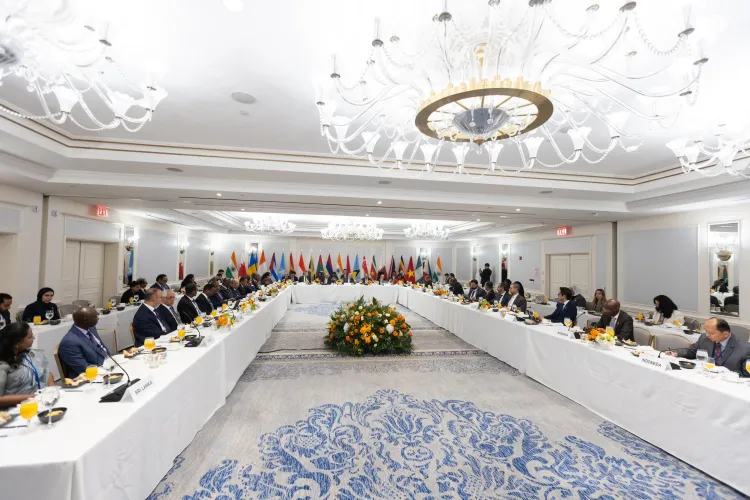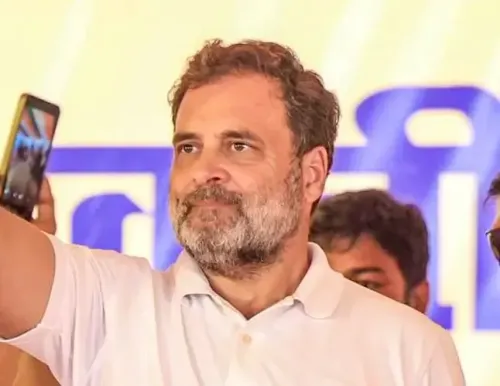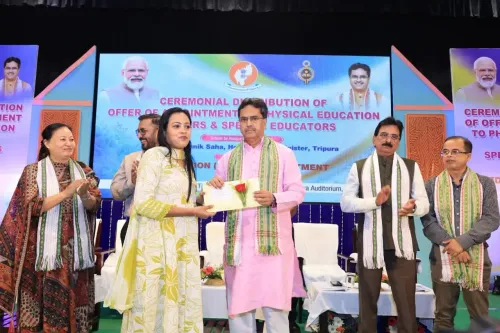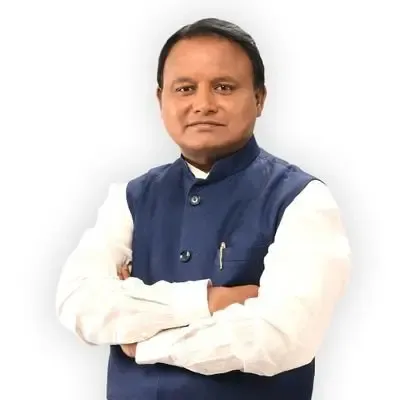Will India Host a Global South Biosecurity Conference to Celebrate 50 Years of BWC?

Synopsis
Key Takeaways
- India hosts the Global South Biosecurity Conference.
- Commemorates the 50th anniversary of the Biological Weapons Convention.
- Over 80 countries will participate in discussions.
- Focus on biosecurity, biosafety, and emerging technologies.
- Aim to enhance international collaboration against biological threats.
New Delhi, Nov 24 (NationPress) India is preparing to host a significant international conference next week in honor of the 50th anniversary of the Biological Weapons Convention (BWC), which will gather delegates from over 80 nations of the Global South to address the ongoing challenges associated with biosecurity, biosafety, and the emergence of new biological technologies.
The two-day event, set for December 1–2 at the Sushma Swaraj Bhawan in New Delhi, aims to unite scientists, policymakers, diplomats, and specialists from various multilateral organizations.
With just days remaining before the conference, preparations are in full swing for this crucial gathering of biosecurity authorities and diplomats from the Global South.
Ministry of External Affairs (MEA) spokesperson Randhir Jaiswal announced on X, stating: "Only six days to go! Reflecting India's steadfast commitment to disarmament and non-proliferation, @MEAIndia is organizing an international conference to commemorate the 50th anniversary of the Biological Weapons Convention (BWC): 50 Years of BWC: Strengthening Biosecurity for the Global South, December 1–2, 2025."
He confirmed the venue for the event will be the Sushma Swaraj Bhawan in New Delhi.
“Experts from over 80 countries of the Global South and representatives from regional and international organizations will participate,” Jaiswal further added.
This initiative emerges as the BWC marks its 50th anniversary of enactment.
India stands as one of the 189 States Parties to the treaty, primarily composed of developing nations, and has consistently highlighted the necessity of fortifying global standards against biological weapons.
In outlining the conference, Jaiswal stated that it showcases India’s enduring dedication to global disarmament and non-proliferation frameworks while aiming to assist the Global South in enhancing its biosecurity resilience.
Officials noted that sessions will evaluate how the BWC has contributed to international peace and security over the last 50 years and analyze how global shifts, especially post the COVID-19 pandemic, have transformed public health governance and raised new concerns regarding biological risks.
Delegates will also deliberate on the Convention’s synergies with export control frameworks such as the Australia Group and explore methods for boosting international collaboration to prevent the misuse of biological agents.
A substantial focus of the discussions will be the vulnerabilities experienced by developing nations.
Officials emphasized that the Global South continues to endure a disproportionate share of biosecurity and biosafety challenges, exacerbated by rapid urbanization, inconsistent public health capabilities, and increasing exposure to zoonotic threats.
Panel discussions will shed light on deficiencies within regional and national institutional frameworks, underscoring the significance of the “One Health” approach, which integrates human, animal, and environmental health to tackle intricate biological issues.
The conference will also examine how new technologies are altering the bioscience landscape. Progress in synthetic biology, artificial intelligence, and gene-editing tools presents substantial opportunities for enhancing disease surveillance, early warning systems, and emergency responses.
However, these advancements also raise concerns about potential misuse, particularly by non-state actors. Officials indicated that the conference would emphasize the necessity for stronger oversight, regulation, and responsible innovation norms to prevent these technologies from aggravating existing risks.
The discussions are anticipated to culminate in a series of recommendations aimed at strengthening the BWC’s implementation and bolstering biosecurity partnerships across the Global South.
India hopes that this conference will serve as a platform to promote practical collaboration and reaffirm global consensus against the use of biological weapons.









